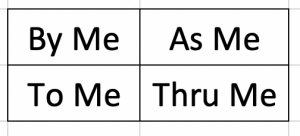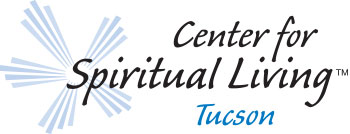Not a Muggle
Sometimes it would seem to be so much easier to just be a ‘muggle’ (JK Rowling’s word for non-wizards), and have life happen to us, and just react blindly and unthinkingly to  whatever comes our way. We wouldn’t be aware we were responsible for what we thought, how we chose to carry ourselves in the world or engage with others. We could just let ourselves be carried away by our emotions in this second. We see this happen all around us all the time. It happens to famous people and normal people.
whatever comes our way. We wouldn’t be aware we were responsible for what we thought, how we chose to carry ourselves in the world or engage with others. We could just let ourselves be carried away by our emotions in this second. We see this happen all around us all the time. It happens to famous people and normal people.
I was in line at the main Tucson Post Office mailing a package just before the holidays in December last year. The line was long and moving very slowly. People were tired of masks, and lines, and just worn out and fed up. A man came in the alternate entrance and cut in line. He had a huge box which was poorly labeled, and poorly taped together for shipping. The post office workers ignored him. They were helping the customers who had been standing in line. He got more and more blustery, without anybody noticing him. After several minutes of complaining loudly about not being served, he left in a huff, taking his big box with him. The man standing in front of me started talking about how that guy made him so mad, and he wanted to just go punch him for being so rude. I smiled at him under my mask, and said “Some people make us happy when they come, and some people make us happy when they go.” My statement caught the guy standing next to me off-guard, and he looked at me really strangely. Eventually his eyes crinkled like he was smiling, he stopped imagining the harm he would do to that guy, and said, “Yeah, you’re right.”
Of course, it’s not really better to be a muggle, and not really possible once we’ve become aware of our accountability for our experience. Sometimes it would feel so consoling to think that I have nothing to do with what I experience – especially when my body hurts, or my heart hurts over some perceived injustice, or I feel angry, or something seems particularly hard or unfair.
Those of us who have been around the Science of Mind teachings have been made aware that we have ultimate responsibility for how we perceive our life experiences. We also know that we have some control over the conditions which pop up in our lives, depending on how much authority we believe we have, and how much we agree with the collective beliefs of our society. It’s hard to stay a muggle when you know you have power. We don’t have ultimate power, partly because we don’t believe that we can, or should be allowed to have it. Master Teacher Jesus is believed to have said (In John 14) “…greater works than these shall he do”. We don’t truly and profoundly know that we live in the Divine, and are of the Divine Nature, and this gets in our way of creating the goodness we imagine for ourselves.
From Ernest Holmes in Ten Ideas that Make a Difference 62.2 (1966): “… the invisible Principle — God, the universal Essence of Reality, the “I am that I am” — is incarnated in us as the “I” which we are. There is the Universal I Am and the individual I. Each one of us is an individual rooted in the Universal I Am — a personification at the level of our conscious perception of that invisible Presence which is both God and man.”
Some of us participated in, or observed, Keith Gorley’s Celebration of Life this past weekend. Keith was very clear on this in his own life. He knew he was of God, at least most of the time, and he loved encouraging others to look within themselves for guidance, and to recognize that that internal guidance, when it was clear and not self-serving (only), was divine in origin.
It’s a practice. We never arrive. We are always, in every moment, part of the divine expression as ourselves and we are always growing and changing, exploring and expressing this Divine Nature as us. Isn’t Life grand?
“You must not ever stop being whimsical. And you must not, ever,
give anyone else the responsibility for your life.” — Mary Oliver, Upstream: selected essays
–Rev Janis Farmer




